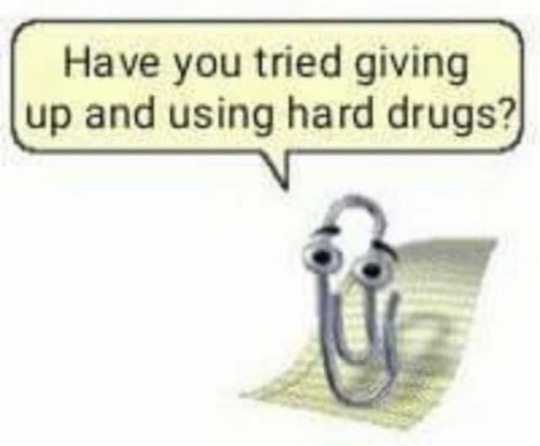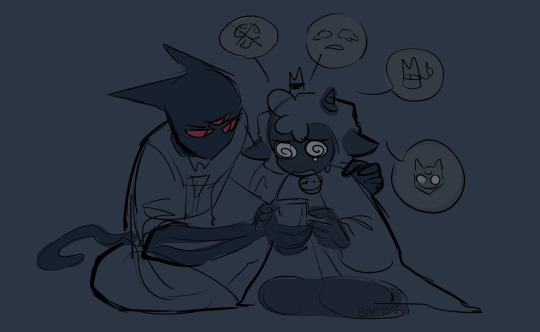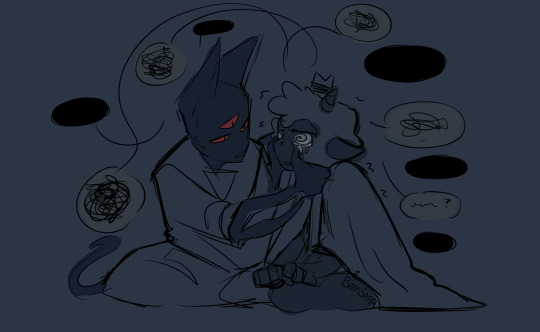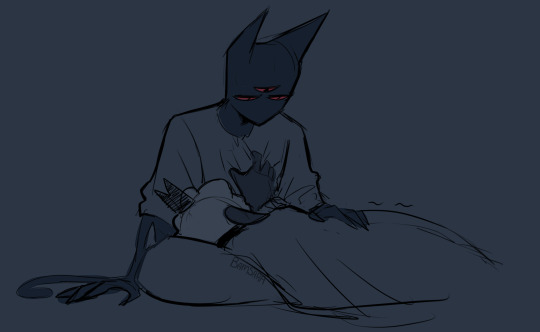#drug rehabilitations
Explore tagged Tumblr posts
Text
















Concept comic for a scene I'm writing for Trod
Takes place in the before-Shamura and mass dissention arc. I think the menticide mushrooms would react horrifically combined with godhood. Instead of seeing things that aren't real, they see real things they're not supposed to
#trod au#the rehabilitation of death#narilamb#finor oc#narinder x lamb#cult of the lamb#doodles#tw drugs#tw poisoning#tw accidental drugging#i wanna provide more context for whats happening here but im torn between spilling everything or keeping my mouth shut lmao
11K notes
·
View notes
Text
A Comprehensive Overview To Alcoholic Drinks Detox And Drug Substance Rehabs In Malibu: Recuperation Due To The Sea

Found along the calm coastline of Malibu, a developing number of people are relying on specialized rehab facilities to address their battle with substance addiction. These resources supply a relaxing environment, favorable to recuperation and development, enabling individuals to concentrate on their healing without the interruptions and stressors of everyday life. As the requirement for reliable therapy proceeds to rise, comprehending the nuances of Malibu's rehab centers is necessary for those looking for a course to soberness. But what collections these facilities apart, and exactly how can people make an informed decision when choosing a rehabilitation plan that satisfies their one-of-a-kind needs?
Knowing Substance Addiction and Healing
Understanding substance addiction is a multi-dimensional method that includes acknowledging the complicated interaction of organic, psychological, and ecological aspects that bring about substance dependancy. In the context of alcohol detoxification in Malibu, people should recognize the job of genetics, mind chemical make up, and lifestyle experiences in their substance addiction. Efficient recovery requires a thorough understanding of these variables, and also the advancement of adapting systems and methods for lasting sobriety. The alcohol detox Malibu deliver a supporting and organized setting for individuals to undertake this procedure. These rehabs deliver a risk-free area for individuals to detox from elements, take care of withdrawal signs, and take part in treatment and therapy.
Benefits of Malibu Rehab Centers
Malibu's picturesque landscape and serene ambience supply a relaxing scenery for the rehabilitation method, making it possible for people to pay attention to their therapy and treatment. This special environment provides an excellent atmosphere for individuals having a hard time along with substance addiction to get away from the tension and induces of every day life and submerse on their own in the healing method. The deluxe drug & alcoholic drinks rehabs in Malibu give a comprehensive and alternative approach to treatment, attending to the bodily, mental, and metaphysical components of addiction. These deluxe rehabilitations give state-of-the-art facilities, experienced workers, and a stable of evidence-based therapies to assist people on their experience to healing. Malibu inpatient alcohol rehabs, in specific, deliver a safe and helpful environment for people to detox and get extensive treatment.
Types of Treatment Courses
A considerable variety of treatment plans is actually on call in luxury drug & alcohol rehabs Malibu, serving to assorted needs and inclinations of people dealing with substance addiction. These systems are tailored to resolve details needs, ensuring reliable rehabilitation and long-term soberness. Some rehabs give inpatient systems, where clients stay on-site, getting 24/7 care and assistance. Others provide outpatient systems, permitting people to participate in treatment sessions while keeping a normal routine. Medication-assisted therapy (FLOOR COVERING) is additionally readily available, including clinical drug to alleviate withdrawal indicators and handle yearnings. This strategy is actually frequently used together with personality therapy, marketing a comprehensive rehabilitation process.
Deciding On the Ideal Rehab Facility
youtube
Selecting a rehabilitation facility that straightens along with a person's specific needs and scenarios is actually crucial for a productive recovery. When selecting the best rehabilitation resource, it is necessary to evaluate a number of aspects, consisting of the style of therapy systems used, the qualifications of the clinical workers, and the total ambience of the center. In Malibu, individuals may locate a stable of rehab resources that offer all-inclusive therapy plans, consisting of medication-assisted treatment and all natural approaches. These resources often integrate typical medication along with alternative treatment strategies to make an all-around treatment planning. Individuals should additionally analyze the degree of care delivered, featuring the staff-to-patient proportion and the availability of physician.
Aftercare and Relapse Prevention
The last phases of a rehabilitation plan often indicate a vital turning place in a person's rehabilitation adventure. At this point, the concentration switches from first treatment to long-term maintenance and relapse prevention. For those who have actually accomplished a system at one of the Malibu inpatient alcohol rehabs, aftercare preparation is important to assure a smooth shift back in to regular life. A well-structured aftercare program gives on-going support and advice, assisting individuals remain on track and steer clear of relapse. This might include frequent therapy sessions, help team conferences, and lifestyle mentoring. The goal is certainly not only to manage the bodily elements of addiction but additionally to address rooting psychological and mental issues that may have added to the substance addiction in the very first location.
Conclusion
In summary, alcoholic drinks cleansing and drug rehabilitations in Malibu deliver an unique environment for people to get rid of substance addiction. The blend of comprehensive strategies, advanced centers, and expert personnel enables people to accomplish lasting soberness and general health. Efficient treatment courses, aftercare, and relapse avoidance approaches help in effective recovery results. The peaceful settings of Malibu assist in a helpful and stress-free setting, eventually leading to a road of continual healing and boosted quality of lifestyle.
0 notes
Text

#drug aesthetic#aesthetic#mentally tired#mentally fucked#depressing quotes#mentally exhausted#drugs aesthetic#iv drugs#edgy theme#mentally unwell#oxycontin 80mg#addiction#i need heeeeelp#drug rehab#rehabilitation#drug blog#please help#giving up#i am suffering#i am unstable#i am unwell
274 notes
·
View notes
Text
2000s/2010s RONNIE RADKE!!










Guys I know this is a sensitive topic and I know he was a drug addict and low-key had an addiction with alcohol, too. But I’m honestly so proud of him, even though I don’t know him, and never will. He’s strong >|||<
………………………………………
**************************
#emo#music#2000s emo#2010s#2000s aesthetic#soundcloud#fandom#tumblr fyp#drug rehab#alcohol rehab#so proud#escape the fate#falling in reverse#early 2010s#fypage#fypツ#rehabilitation#SoundCloud#ronnie radke
95 notes
·
View notes
Text
In life, I believe we are all just addicts struggling with our drug of choice.
For some, it may be actual drugs. Meth, cocaine, heroine, marijuana... whatever suits them. For others it is alcohol or cigarettes or other tobacco products.
It may be pornography. Or self harm.
I have wrestled with my drug of choice for about four years. Indulging daily or weekly. I'm accustomed to counting wins by the day.
...
Tomorrow, I'm going out with some friends to celebrate two months clean. Eventually I may relapse back into my old habits, but that's not the point. The point is proving to myself that I am able. Recovery is possible.
I WILL NOT BE A SLAVE TO MY DRUG.
And I'll encourage you to adopt the same mantra. These addictions and this society that fuels them? It can't hold us. We are free.
#alternative#tw drugs#rehab#rehabilitation#addiction#self harm#sh#suicidal#depression#anxiety#mentally ill#mental health awareness#actually mentally ill#ak thoughts#ak rants#mental illness#recovery#we will recover#encouragment#encouraging words#life update#clean#self control#addict#recover#deep shiz#deep thoughts#deep#anti capitalist#anarchist
77 notes
·
View notes
Text
https://archiveofourown.org/works/61915675
First fiction of the year!!!
It's an old Halloween story that I didn't get a chance to post in time.
Beatles Halloween Challenge 2024
Day 6 sick
#the beatles#ao3 fanfic#ao3 beatles#ao3 fanfiction#george harrison#ringo starr#starrison#beatles halloween#george and ringo#boyfriends#secret love#alcohol rehab#drug rehab#rehabilitation#clean and sober#emotional#tea#ringo speaks out#George humbled#ao3 link#gay love#gay kiss#bisexual ringo#bisexual george harrison#gay romance#ao3 series#ao3 author#ao3 writer#ao3 comments#ao3 kudos
9 notes
·
View notes
Text
reuben "kidnapping is a strong word" march
#he tries to explain to Nat that it's like. taking a sick or injured animal for rehabilitation and to like#learn more about it and how to help it#does the animal consent? is the animal afraid? no! and yes!#but it's for the best. the animal doesn't know its for the best#anyway drugging kidnapping and torturing vampires is fine guys#a rental car takes a left down rake street and disappears
124 notes
·
View notes
Text
Their lives are like an invisible war
April 13, 2019. 11:43pm
Mexican Restaurant across from Freshca Restaurant with Josh P. Josh “radishes and bright colored vegetables are good for you.”
That Aronn H. Hospital visit was shocking. Josh just wanted to be taken back to the Mission. He’s a good ally through this. Aaron has no landing spot. At the hospital—Aaron said of me “I was just thinking about you.”
So, I took Aaron’s plight the streets To Will of Will and Chrisy.
He knows the ravages of the streets. He almost over dosed on heroin and died recently. His daughter, happy with parents who travel.
Aaron and his shirts, not worth being shot over. He asked Josh “Have you ever been shot?” Josh “No”.
When I dropped Josh off at the mission, as he walked away to 6 hours of church, I thought “it could have been him who was shot.” We met the day after he was plowed down by a car.
Kevin (the stand up comedian Kevin), lying prone on the side walk with Mc Henery Ave traffic screaming by yesterday, holding a sign “Hungry: Free Art."
Their lives are like an invisible war. They are societal collateral damage.
End of message
Notes 12/9/2024
Josh P., Aaron, Will and Kevin were all good looking , young white guys. But for drug and or mental health related reasons, they had ended up on the street, or, often on the street. Aaron was shot in the leg as he dashed out of a convince store with shirts he was stealing from the store. In the above entry, Josh and I had gone to visit Aaron in the hospital after he was shot. Josh had a massive heroine addiction, but had entered the Mission Religious based shelter program and had pulled himself up and out of addiction. Will and Chrissy had lost their parental rights to their daughter in dependency court due to their homelessness and drug problems. Kevin is the artist I have blogged about recently. I had known them all for some time by April 2019. Kevin, Josh and Aaron had been to my house. I considered them to be friends. Certainly they were great teachers.
#journaling#writing#homeless work#homelessness#drug addiction#mental illness#The Mission drug rehabilitation#4/13/2019
15 notes
·
View notes
Text
if it’s not already out there I need a modern Robin/Julian AU where Robin is Julian’s dealer for, well, anything.
and they eventually hang out together, because Julian can actually be himself around Robin, there’s no expectations and he’s fun and puts up with him! And Robin doesn’t really trust anyone but the untrustworthy MP, who has put his reputation in his hands. His life in his hands.
so try new strains and imports at Julian’s second or third or fourth house, get high off whatever, and eventually make small mistakes - falling asleep in the same bed, roughing up hair just to feel the other man, fumbling open buttons to get out of clothes because the air con isn’t working but neither is my body, craving intimacy when it’s only one more half-hearted drunken shoulder massage away, trying to remember if they actually did touch each other last night or hallucinate it or dream it because everything is melting together now
until the dam breaks
#then the news breaks and Julian fights Robin thinking he outed his drug misuse to the public and Robin denies because he’d never do that#and they part ways. toxic yaoi my beloved.#until Julian finds out it was Barclay or something who had sold pics of him to a paper#and he doesn’t know how to contact Robin bc he’d deleted his number and never went to his house#he ends up in rehab after the divorce comes through and he’s stumbling around London looking for Robin#but he finds him at the rehabilitation centre#they’re in it together#and rebuild a life outside of it#I have a lot of thoughts about them#bbc ghosts#chess husbands#julian#robin
40 notes
·
View notes
Note
Who is director Hart?

" She's the reason I can think straight at all! She treated me, helped me overcome my pain... Mostly... And gave me a home until Urbanshade requested my help with the Lockdown. I miss her. She promised we'd see each other again when this was all over. "
[ text in case it's hard to read; Director Brandy Hart. Curator & Head of the Benacre Waterplay and Research Centre. My saviour. The closest thing I have to a mom. ]
#not tickles#my art#mine#my ocs#audie#director hart#more lore in the tags :333 >#so brandy is in her sixties and used to be a member of the board of ethics at her institute#which is the ministry of joy (iykyk)#after being a thorn in their side for ages she finally reached retirement age but didnt want to retire#instead she was shifted from project to project before settling at the BWARC#which is essentially like. a marine rehabilitation aquarium and waterpark#existing both as a revenue generator and a testing ground for... a certain drug (again. iykyk.) on marine life#there are other members of staff audie knows and is close to as well :>
10 notes
·
View notes
Text
"These calls for “getting tough” also generated debate and bitter exchanges between different groups claiming to represent African Americans. Some critics insisted that “law and order” operated as a euphemism for anti-black and anti–civil rights sentiments. Leonard De Champs, chairman of the Harlem Chapter of the Congress of Racial Equality (CORE), excoriated the NAACP, calling it “oppressive and Nazi-like for its Fascist proposals regarding law and order in the streets of Harlem and New York City’s other Black communities.” He charged that
Vincent Baker’s love for mandated jail sentences and tightened-up parole procedures conclusively proves that the NAACP is an effective enemy of the 1.2 million Black people in this city.
Floyd McKissick, a longtime civil rights activist and another leader of CORE, claimed that the NAACP’s punitive recommendations reflected the interests of the black middle class. He wrote that
the arguments used in the report of the NAACP smack suspiciously of the Ronald Reagan-George Wallace school of repressive ‘law and order,’ at any cost. They appeal to the fears and prejudices of citizens who have even a little bit worth protecting.
He pointed to “a gap of understanding between middle class and poor Blacks along economic lines” and explained that
we should know by now that the addition of more white cops in the ghetto solves nothing. The ones who suffer more from such measures are the poor blacks; not necessarily the guilty ones.
Instead of harsher punishment, McKissick called for community control:
The ghetto must be safe for its citizens, but it cannot be made so by police state tactics. All efforts must be directed toward the ending of conditions which breed crime and chaos; all efforts much be directed toward the development of a Black-orientated, Black controlled law enforcement agency—an agency dedicated to the aid and protection of Black people, not to their suppression.
During this period, a host of community groups and organizations set up treatment programs, many of which received New York City and state funds, intended to be more directly accountable to thecommunities in which they were embedded. Some grew out of churches and established community groups, while others were connected to more radical political organizing. For example, in March 1969, eighty volunteers and twenty-two drug addicts took over a three-story building in Harlem and set up a drug-treatment program. They hoped to bring attention to “the inadequacy of the state’s narcotic program and the entire health program for the black people.” The addicts involved told the New York Times that they had faced a maze of waiting lists and applications in their efforts to secure treatment. One had never heard back from a program he had applied to three years earlier in 1966. The journalist reported that all of the patients interviewed complained that the state’s drug addiction programs were “more punishment than rehabilitation.” One addict asked if “I should turn myself in to the state and be locked up for rehabilitation.” They contrasted the civic degradation of the state treatment programs with guerrilla programs, claiming that in the latter, they “talk to you like a man, not a statistic—the people really want to help you and it makes you want to help yourself.” After a police eviction order, the center was closed and the patients transferred to an “underground hospital.” In subsequent years, other groups also established treatment programs. The Young Lords, a radical group dedicated to Puerto Ricans’ self-determination, were integral to establishing a detox program at Lincoln Hospital.
Drastic fluctuations in policing further intensified frustration within urban communities. In 1969, the city initiated a major intensification in street-level enforcement of drug markets. At a press conference in September, Mayor Lindsay announced that the police department intended to shift the narcotics division’s 500-person force to the pursuit of upper-level drug arrests and direct the entire remaining patrols to prioritize narcotic arrests at the street level. This sweep produced a considerable uptick in narcotics arrests in New York City: they jumped from 7,199 in 1967 to 26,378 in 1970. Then, in 1971, at a high point in the surge of heroin use, the NYPD abandoned their campaign of intensive street-level drug policing. Police officials claimed that the policy was ineffective and expensive and resulted in low conviction rates because the court system did not have the capacity to process the arrests. The result was a dramatic fall-off in arrests. New York City police conducted over 24,025 felony drug arrests in 1970, 18,694 in 1971, 10,370 in 1972, and 7,041 in 1973."
- Julilly Kohler-Hausmann, Getting Tough: Welfare and Imprisonment in 1970s America. Princeton: Princeton University Press, 2017. p. 57-59.
#new york#harlem#congress of racial equality#naacp#therapeutic community#drug rehab#addiction rehab#rehabilitation#failure of rehabilitation#war on drugs#substance dependence#history of addiction#history of drug use#academic quote#united states history#getting tough#reading 2022#street crime#nypd#civil rights#african americans#racism in america#african american history#heroin
13 notes
·
View notes
Text









bad time, but at least you're not alone
doodles for trod au, later stuff
12K notes
·
View notes
Text
The whole thing is horrifying and infuriating, especially how his MOTHER is the one who feels guilty. Hello??? Maybe feel guilty that you didn't abort that thang (illegal, but so's a lot of stuff) but he chose to strangle and/or stab his girlfriend to death (AND to kidnap and abuse a 13 year old over a debt of less than $20!) Why isn't his father the one apologizing for raising a menace to society?
#if it's any consolation the whole uwu he just needs rehabilitation disk horse is not a thing#even saying that drug addicts and political prisoners shouldn't be in jail is radical commie bleeding heart stuff
10 notes
·
View notes
Text
How Alcohol Affects the Brain: Understanding the Impact and Path to Recovery

Alcohol consumption is a common part of social life for many people, but its effects on the brain can be significant and far-reaching. Chronic or heavy drinking can lead to both short-term and long-term changes in brain function and structure, potentially resulting in addiction. Understanding how alcohol affects the brain is critical to recognizing the need for professional help through an Alcohol Treatment Program or Detox Program offered at an Addiction Treatment Center in Port Charlotte.
The Short-Term Effects of Alcohol on the Brain
When alcohol enters the bloodstream, it travels to the brain, where it begins to interfere with communication pathways. These disruptions affect how the brain processes information, leading to:
Impaired Judgment Alcohol reduces activity in the prefrontal cortex, the area responsible for decision-making and impulse control. This can result in risky behaviors and poor judgment.
Memory Lapses Alcohol impacts the hippocampus, a region of the brain essential for forming new memories. Even moderate drinking can cause short-term memory loss or blackouts.
Slowed Reaction Time Alcohol acts as a depressant on the central nervous system, slowing down the brain’s communication with the body. This can lead to delayed responses and impaired coordination.
The Long-Term Effects of Alcohol on the Brain
Prolonged or excessive alcohol use can cause lasting damage to the brain, including:
Brain Shrinkage Chronic alcohol consumption can reduce the size of the brain, particularly in areas related to memory and cognitive function. This can lead to problems with learning, concentration, and decision-making.
Neurotransmitter Imbalances Alcohol alters the levels of neurotransmitters like dopamine and serotonin, which play a role in mood regulation. Over time, this can contribute to mental health issues such as anxiety and depression.
Wernicke-Korsakoff Syndrome Heavy drinking can lead to a deficiency in thiamine (vitamin B1), resulting in a condition called Wernicke-Korsakoff syndrome. This disorder causes severe memory problems, confusion, and motor issues.
Increased Risk of Addiction Repeated alcohol use changes the brain’s reward system, making it more difficult to feel pleasure without alcohol. This reinforces the cycle of addiction, requiring intervention through an Addiction Treatment Program or Alcohol Detox Program.
Alcohol’s Impact on Mental Health
In addition to physical damage, alcohol can significantly impact mental health. It can exacerbate pre-existing conditions like anxiety and depression or lead to the development of new issues. Individuals often find themselves caught in a cycle where they use alcohol to self-medicate, only to worsen their symptoms over time.
The Role of Detox and Treatment
For individuals struggling with alcohol dependency, the first step toward recovery is recognizing the problem and seeking professional help. An Addiction Treatment Center in Port Charlotte provides a variety of services designed to address both the physical and psychological effects of alcohol use.
1. Alcohol Detox Program
Detoxing from alcohol is a critical step in recovery. A medically supervised Alcohol Detox Program ensures safety during withdrawal, which can include symptoms like nausea, tremors, and even life-threatening seizures.
2. Addiction Treatment Program
After detox, a comprehensive Addiction Treatment Program helps individuals address the root causes of their alcohol use. This often includes therapy, counseling, and holistic treatments to promote long-term recovery.
3. Residential Program
For those with severe alcohol dependency, a Residential Program provides a safe, supportive environment for intensive treatment. This structured setting allows individuals to focus entirely on their recovery without external distractions.
4. Dual Diagnosis Treatment
If mental health issues co-occur with alcohol addiction, dual diagnosis treatment is essential. This integrated approach addresses both conditions simultaneously, improving outcomes and reducing the risk of relapse.
The Importance of Early Intervention
The longer alcohol misuse continues, the greater the damage to the brain and overall health. Early intervention through a Detox Program or Alcohol Treatment Program can prevent long-term complications and provide the tools needed for a successful recovery.
At Port Charlotte Detox, our team is committed to helping individuals take that critical first step. With services like Drug Detox Programs, Residential Programs, and specialized addiction treatments, we offer personalized care tailored to your needs.
Taking the First Step Toward Recovery
Alcohol’s effects on the brain can be devastating, but recovery is possible with the right support. If you or a loved one is struggling with alcohol dependency, don’t wait to seek help. An Addiction Treatment Center in Port Charlotte can provide the resources and guidance needed to reclaim your life.
Conclusion
Alcohol may have short-term effects that seem harmless, but its long-term impact on the brain can be profound. By understanding these effects and seeking professional treatment through a Detox Program or Residential Program, individuals can break free from addiction and begin the journey to a healthier, happier life.
Recovery is possible—start your journey today with the expert care and support of Port Charlotte Detox.
#alcohol addiction#alcohol rehab#rehabilitation#drug recovery#drug rehab accepts medicaid#rehab centre#addiction#substance abuse#addicted
2 notes
·
View notes
Text
Excerpt from a memoir written in residential mental health treatment, titled, "A Search for Comfort"
I crawl out of bed and walk down the hallway to the nurses office, taking a seat on the single yellow armchair in the hallway and clutching my stuffed animal sloth to my chest. It’s 7:12AM, and I sit in my anxiety until the top-half of the nurses door unlocks, revealing the nurses station inside. I’m waiting for my medication: my adderall, klonopin, abilify, and zoloft. I can’t live without them. They stop me from feeling 6, 13, and 17 again, from becoming nothing but a toy that others used at their own will. They stop me from feeling helpless and alone, and most importantly, they stop me from taking a jagged piece of metal to my carotid artery.
The top half of the nurses station door opens and I approach it. I say my name, date-of-birth, and allergies, “Noah, 0X/XX/04, Benadryl.” The staff member responds back, “okay Noah. I have your Abilify, your Adderall, your Klonopin, and your Zoloft.” I take the medication, show them that I didn’t cheek the meds, and throw my cup away. I turn around and head back to my room. I feel at ease, knowing the medication is going to work soon. There is only one staff member at the house today, so I have to wait to go downstairs till everyone is done with their meds--we have to stay within their line of sight. I walk into my single room at the end of the hallway, and crawl back in bed.
My sheets were removed from my bed a week before to prevent me from hanging myself with them, so I only have a comforter. I pull the comforter over me, and wrap my sloth in it like a baby being swaddled. I clutch him close to my chest once again, and try to fall back asleep. I hold him there to ease the anxious static in my chest. It's growing and growing, as if my veins were wires connected to an everlasting lithium ion battery that powers my heart. My chest is the center point of my anxiety, so I hold my sloth close to bring a little bit of relief. I was safe with my sloth, Slothy. I tell myself, “he's the safety Slothy, nothing bad can happen with safety Slothy.”
That's what I have so far. Let me know your thoughts!
#ptsd recovery#did#actually did#childhood trauma#dissociation#osdd#actually cptsd#bipolar disorder#emotional abuse#trauma recovery#recovery#living with cptsd#did system#did osdd#did alter#osddid#treatment#child abuse#addiction rehab#drug rehab#rehabilitation#ptsd#complex ptsd#actually ptsd#c ptsd#trauma#trauma survivor
5 notes
·
View notes
Text
Common and Uncommon Clonazepam Side Effects

Clonazepam, a widely prescribed benzodiazepine, is often used to manage anxiety disorders, seizures, and panic attacks. While effective, it’s important to understand the potential side effects—both common and uncommon—associated with this medication. This knowledge is crucial for anyone considering treatment options or those undergoing Substance Abuse Treatment in Boston for benzodiazepine dependency.
Common Side Effects of Clonazepam
Like most medications, clonazepam can cause side effects, particularly when first starting the treatment. These include:
Drowsiness: One of the most reported side effects, as clonazepam works by calming brain activity.
Dizziness: Often a result of its sedative properties.
Coordination Issues: Muscle weakness or a lack of balance can occur, especially in higher doses.
Memory Problems: Difficulty concentrating or mild forgetfulness is not unusual.
Fatigue: General tiredness can impact daily functioning.
For individuals in an Intensive Outpatient Program in Boston, managing these side effects can be a challenge, but healthcare providers can offer strategies to mitigate discomfort while continuing treatment.
Uncommon Side Effects of Clonazepam
Though less frequent, some individuals may experience rare or severe side effects. These include:
Depression or Mood Changes: Feelings of sadness, irritability, or agitation may arise.
Confusion: Difficulty understanding or processing information.
Hallucinations: In rare cases, visual or auditory hallucinations can occur.
Severe Allergic Reactions: Symptoms such as swelling of the face, tongue, or throat, or difficulty breathing, require immediate medical attention.
Liver Dysfunction: Signs include jaundice (yellowing of the skin or eyes) and dark urine.
If you or a loved one experiences any of these uncommon side effects, it is important to consult your physician or an Addiction Treatment Center in Boston promptly.
Long-Term Side Effects of Clonazepam
Long-term use of clonazepam carries risks, especially when taken without medical supervision. These may include:
Dependency and Addiction: Prolonged use increases the risk of physical and psychological dependence, often requiring support through Drug Rehab Programs in Boston or a Partial Hospitalization Program in Boston.
Cognitive Decline: Chronic use has been linked to memory impairments and decreased mental sharpness.
Tolerance Development: Over time, individuals may require higher doses to achieve the same therapeutic effects, heightening the risk of overdose.
Clonazepam Withdrawal Symptoms
Stopping clonazepam suddenly can lead to withdrawal symptoms, which can range from mild to severe. Common withdrawal symptoms include:
Insomnia
Irritability
Increased anxiety
Muscle cramps
Seizures (in severe cases)
For those seeking help, an Inpatient Treatment Program in Boston or an Aftercare Program in Boston can provide the structured support needed for safe detox and recovery.
Managing Clonazepam Side Effects Safely
For individuals prescribed clonazepam, open communication with healthcare providers is essential. Here are some tips:
Follow the Prescription: Take clonazepam exactly as prescribed to minimize the risk of side effects.
Avoid Alcohol and Other Substances: Combining clonazepam with alcohol or drugs can exacerbate side effects and increase the risk of dependency.
Monitor for Changes: Keep track of any new or worsening symptoms and report them promptly.
Seek Professional Help if Needed: Programs like an Outpatient Program in Boston or Addiction Therapy Programs in Boston offer guidance and support for managing medication concerns.
Finding Help for Clonazepam Dependency
If you or a loved one is struggling with clonazepam dependency, know that recovery is possible. At Greater Boston Addiction Centers, we offer comprehensive care, including Substance Abuse Treatment in Boston tailored to individual needs. From detoxification to therapy and aftercare, our team is dedicated to helping you achieve lasting recovery.
Whether you require an Intensive Outpatient Program in Boston, a Partial Hospitalization Program in Boston, or a supportive Aftercare Program in Boston, we’re here to guide you every step of the way. Contact us today to learn more about our programs and take the first step toward a healthier future.
2 notes
·
View notes